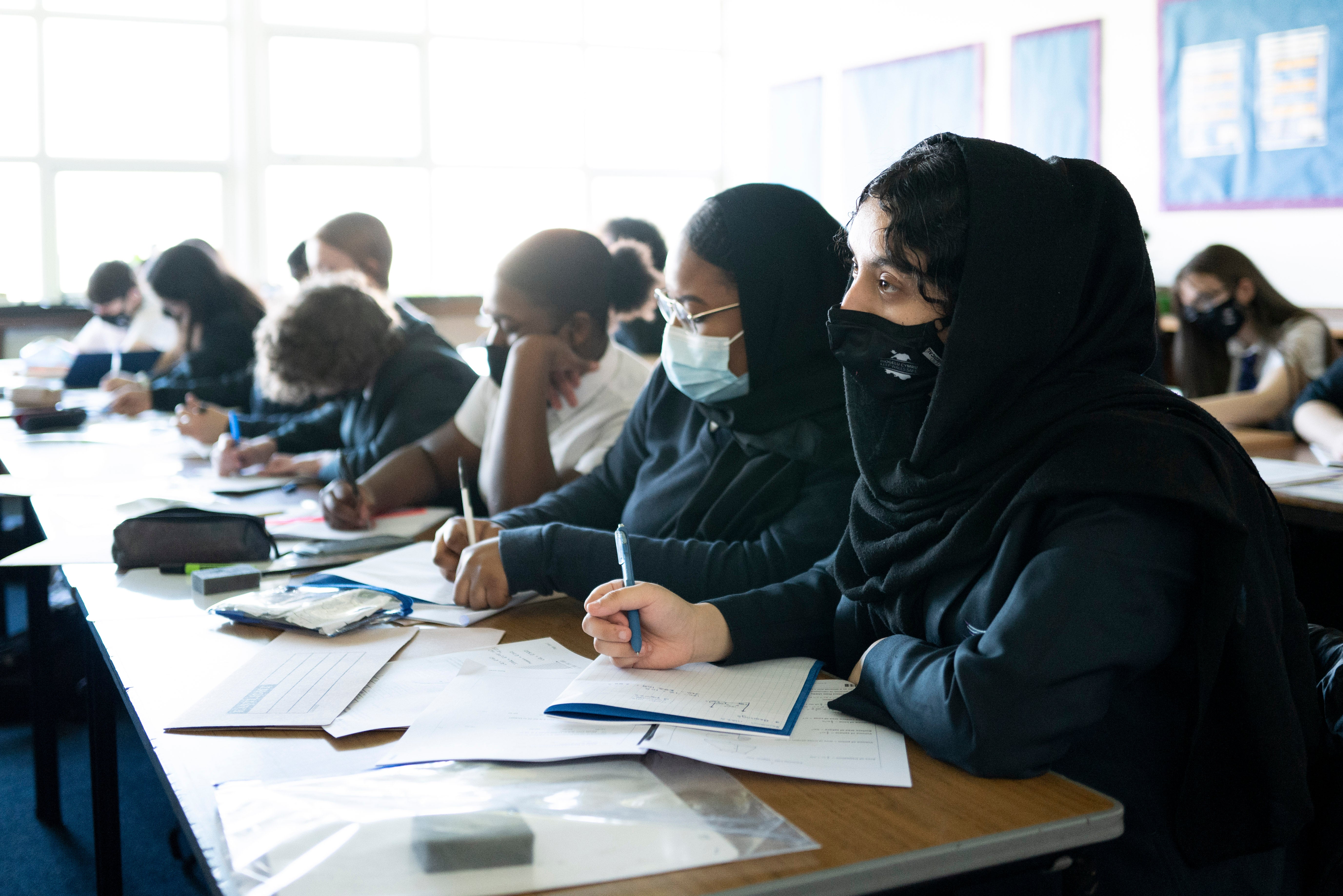Open classroom windows to cut spread of Covid in schools, government adviser says
‘We want to get reasonable levels of ventilation, but we don’t want people to be freezing cold,’ says Professor Tim Sharpe

Your support helps us to tell the story
From reproductive rights to climate change to Big Tech, The Independent is on the ground when the story is developing. Whether it's investigating the financials of Elon Musk's pro-Trump PAC or producing our latest documentary, 'The A Word', which shines a light on the American women fighting for reproductive rights, we know how important it is to parse out the facts from the messaging.
At such a critical moment in US history, we need reporters on the ground. Your donation allows us to keep sending journalists to speak to both sides of the story.
The Independent is trusted by Americans across the entire political spectrum. And unlike many other quality news outlets, we choose not to lock Americans out of our reporting and analysis with paywalls. We believe quality journalism should be available to everyone, paid for by those who can afford it.
Your support makes all the difference.Teachers should consider keeping classroom windows open to reduce the spread of Covid in schools, a government health adviser has said.
The return to school for pupils in September under near-normal conditions has led to fears there will be a spike in infections in the autumn.
But Professor Tim Sharpe, a member of the Environmental Modelling Group – a sub-group of the Scientific Advisory Group for Emergencies (Sage) which advises the government – said ensuring rooms were well ventilated was one way of helping lower the risk of transmission.
Speaking on the BBC’s Breakfast on Wednesday, the University of Strathclyde professor said “making sure that spaces are well ventilated is a good way of reducing that risk, of helping to get fresh air in to get rid of the virus where it may occur”.
He said school staff would need to find the right balance between adequate ventilation and making sure children were not “freezing cold”.
Prof Sharpe said: “It doesn't mean opening all the windows all the time, it's a managed process and obviously we're balancing things. We want to get reasonable levels of ventilation, but we don't want people to be freezing cold, so trying to sort of get that middle ground is something to aim for.
“It might be things like opening windows a little bit. It might be things like opening the windows a lot in between classes just to kind of flush things through a little bit. That could be a useful technique so that people aren't cold or uncomfortable.”
Commenting on air cleaners which have been touted as an alternative means of sanitising indoor spaces, he said they should be “an option of last resort” in rooms which cannot be ventilated in any other way.
“Some forms of air cleaner may be effective but you need to be cautious about which ones are being used,” he said. “Some in themselves may be a little bit harmful, but there are good filtration systems which may be helpful.
“Air conditioning is a slightly different thing, that's primarily a sort of cooling thing. A lot of schools, bigger schools certainly, may have mechanical systems, so they are systems which use fans and ducts to move air around the spaces.
“And if those systems are working, as I said, they're properly maintained … they can give you good ventilation rates, and that can be kind of properly managed.”
The new school year is set to start this week for many students across England, with self-isolation rules relaxed for under-18s.
Testing requirements are still in place but bubbles have been removed so children can mix with different age groups and classes.
The return to some form of normality for students and staff has led to concerns about a potential for rising cases and further disruption.
Michael Tidd, a primary school headteacher, told The Independent this week that the current guidance suggests schools “just go back pretty much to normal”.
“I fear that the next few weeks are going to see me back on the treadmill of managing the fallout of the virus, whether that’s providing online access to learning for increasing numbers of individual children isolating, or covering for staff who become infected themselves,” he said.
Jonathan Mounstevens, a deputy headteacher in Hertfordshire, said: ”I think students and staff are crying out for education free from disruption.
“My concern is that I don’t see how a large spike in cases can be avoided once term is underway, with no effective means of minimising transmission in schools.”
Join our commenting forum
Join thought-provoking conversations, follow other Independent readers and see their replies
Comments